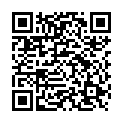|
|
|
| Module code: BAME18-20 |
|
6S (6 hours per week) |
|
7 |
| Semester: 5 |
| Mandatory course: no |
Language of instruction:
German |
Assessment:
Exam achievement: Term paper
[updated 05.11.2020]
|
BAME18-20 Health care management, Bachelor, ASPO 01.10.2018
, semester 5, optional course
|
90 class hours (= 67.5 clock hours) over a 15-week period.
The total student study time is 210 hours (equivalent to 7 ECTS credits).
There are therefore 142.5 hours available for class preparation and follow-up work and exam preparation.
|
Recommended prerequisites (modules):
BAME18-05 Academic Methodologies and Study Skills I
BAME18-07 Methodologies I
[updated 17.08.2017]
|
Recommended as prerequisite for:
|
Module coordinator:
Prof. Dr. Iris Burkholder |
Lecturer:
Prof. Dr. Iris Burkholder
Dr. Sindy Lautenschläger
[updated 17.08.2017]
|
Learning outcomes:
Rehabilitation Sciences:
After successfully completing this module, students will be familiar with legal aspects in the field of rehabilitation. Students will in particular, study the International Classification of Functioning Disability and Health (ICFDH) intensively and discuss possible applications in practice. In addition, they will receive a comprehensive overview of current developments, fields of action, research needs and network structures in rehabilitation sciences.
Basics of Clinical Studies:
The students will be familiar with the legal, ethical and administrative aspects of conducting clinical trials in accordance with protocols. They will understand the essential regulations for clinical studies and the relationships between the different parties involved. Students will have received basic knowledge about the processes in clinical trials before, during and after implementation. They will be familiar with the most important study documents and quality assurance in clinical trials.
[updated 05.11.2020]
|
Module content:
Rehabilitation Sciences:
Basics of Rehabilitation
_ Prerequisites for rehabilitation, access to medical rehabilitation, application procedure, indication areas, assessment instruments in rehabilitation, rehabilitation phases, the rehabilitation process, target agreement, implementation strategies
_ Rehabilitation institutions, rehabilitation services
_ The biopsychosocial model, International Classification of Functioning Disability and Health (ICF)
_ Therapeutic care in an interdisciplinary rehabilitation team
Legal Aspects and Rehabilitation Guidelines
_ Guidelines from the Joint Federal Committee
_ German Social Code IX
Rehabilitation Research
_ Topics, indication-specific areas, special research needs in health care professions, rehabilitation science tasks, fields of action, requirements
_ The 8 research consortia
_ Research funding
_ Transfering research results into practice
_ Networks in the field of rehabilitation
Basics of Clinical Studies:
1. Introduction to the development of medicinal products and medical devices (study types, participants, procedure and implementation, German Medicines Act (AMG), Medical Devices Act (MPG))
2. National and international regulations (International Conference of Harmonisation _ Good clinical practice (ICH-GCP), Declaration of Helsinki)
3. Ethics in clinical trials (ethics committee (tasks, composition, application), patient rights)
4. Regular documentation in clinical studies (study documents, study data, documentation of safety-relevant events, classification systems, test folders)
Quality assurance in clinical studies (quality assurance measures (monitoring, audits and inspections))
[updated 05.11.2020]
|
Teaching methods/Media:
Print and electronic media, slides, exercises using specialist databases
[updated 05.11.2020]
|
Recommended or required reading:
Rehabilitation Sciences:
_ Arbeitsgruppe Gesundheitsfachberufe des Gesundheitsforschungsra-tes. (2012). Supplement Nr. 2. Forschung in den Gesundheitsfachberu-fen: Potentiale für eine bedarfsgerechte Gesundheitsversorgung in Deutschland. Deutsche Medizinische Wochenschrift 137(6-8):29-76
_ Bengel J, Wirtz M, Zwingmann C (2008). Diagnostische Verfahren in der Rehabilitation. Unter Mitarbeit von Lisa Lyssenko. Bern: Hogrefe
_ Deck R, Raspe H, Koch U (2007). Rehawissenschaftliche Forschung in Norddeutschland. Norddeutscher Verbund für Rehabilitationsforschung - Ergebnisse sechsjähriger Forschungsarbeit. Lage: Jacobs
_ Deutsche Rentenversicherung Bund/Bundesministerium für Bildung und Forschung (BMBF) (2009). Forschung in der Rehabilitation. Gemein-samer Forschungsschwerpunkt "Rehabilitationswissenschaften" des Bundesministeriums für Bildung und Forschung und der Deutschen Rentenversicherung. Berlin: H. Heenemann
_ Deutsche Rentenversicherung. Geschäftsbereich Presse und Öffentlichkeitsarbeit, Kommunikation (2007). Klassifikation therapeutischer Leistungen in der medizinischen Rehabilitation (KTL). 5. Aufl. Berlin
_ Deutsches Institut für Medizinische Dokumentation und Information (2005). Internationale Klassifikation der Funktionsfähigkeit, Behinderung und Gesundheit. Neu-Isenburg: MMI
_ Fries W, Lössl H, Wagenhäuser S (2007). Teilhaben! Neue Konzepte der Neurorehabilitation für eine erfolgreiche Rückkehr in Alltag und Beruf. Stuttgart, New York: Georg Thieme
_ Jäckel WH, Bengel J, Herdt J (2006). Research in Rehabilitation. Results from a Research Network in Southwest Germany. Stuttgart: Schattauer
_ Koch U, Lehmann C, Morfeld M (2007). Bestandsaufnahme und Zukunft der Rehabilitationsforschung in Deutschland. Rehabilitation 46: 127-144
_ Nelles G (Hg) (2004). Neurologische Rehabilitation. 1. Aufl. Stuttgart, New York: Georg Thieme
Basics of Clinical Studies:
_ Fiedler C, Raddatz B (2015). Study Nurse: Das Kompendium für die Weiterbildung und Praxis. Berlin, Heidelberg: Springer
_ Herschel M, Klimm HD (2013). Das KliFo-Buch: Praxisbuch klinische Forschung : mit 58 Tabellen. Stuttgart: Schattauer
Additional literature will be announced in the course.
[updated 05.11.2020]
|


